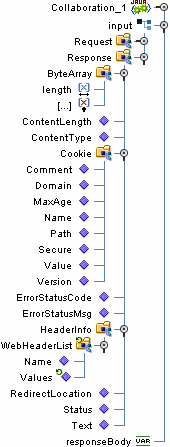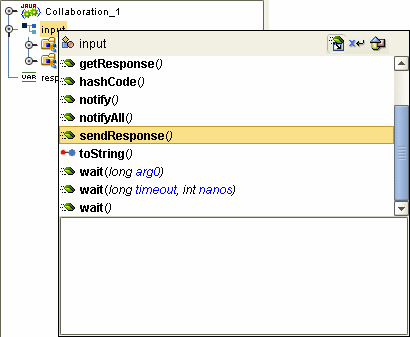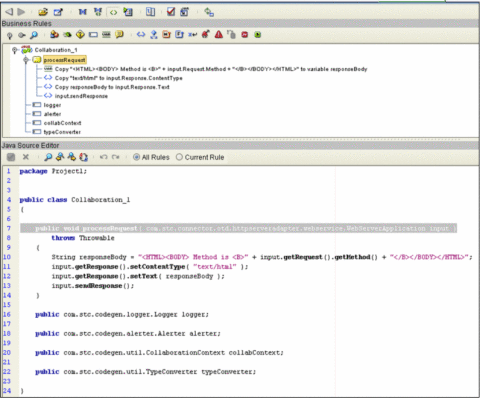HTTPS Server OTD
The HTTPS Server input OTD has two nodes, Request and Response. The Request node contains the data that the HTTPS Server adapter receives from an HTTP client, while the Response node is used to set the HTTP response data that will be sent back to the HTTP client.
Figure 1–1 Input Server OTD

Figure 1–2 Input Server Request Node

Figure 1–3 Input Server Response Node

Working With the Server OTD
Use the OTDs Request and Response nodes to build the logic in your HTTPS Collaborations. The HTTP response is not sent back to the HTTP client until sendResponse() method is called on the HTTP server input OTD.
Figure 1–4 sendResponse() Method

It is critical that you use this method to send the response back to the client. Otherwise, the client will wait indefinitely for the response. HTTP requires that a response be sent to the client whether the response is a valid application response or an application error response.
Collaboration Example
The following example shows a simple Java Collaboration that retrieves the HTTP method from the Request node through the Method property. This creates an HTML response indicating the HTTP method. This method is retrieved from the request, sets the ContentType property as “text/html” on the Response node. It then sets the Text property with the HTML response, and then calls the sendResponse() method. This is called on the HTTP server input OTD to send the constructed response to the HTTP client.
Figure 1–5 sendResponse() Example

- © 2010, Oracle Corporation and/or its affiliates
